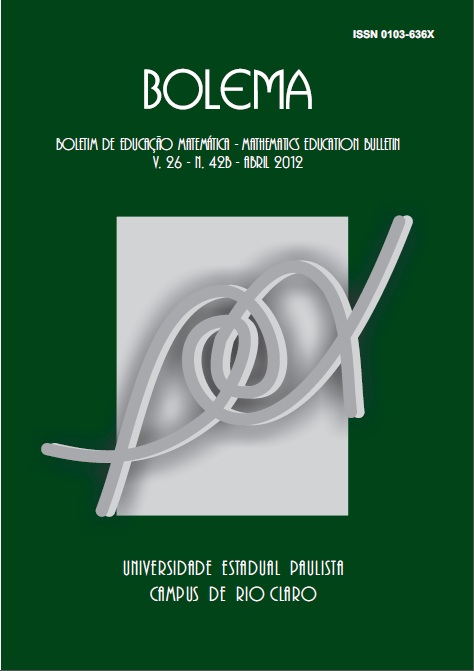<b>The Relationship between Different Kinds of Students’ Errors and the Knowledge Required to Solve Mathematics Word Problems</b>
Palavras-chave:
Word Problems. Arithmetic. Algebra. Geometry. Necessary Knowledge. Students’ Errors.Resumo
Abstract The main objective of this research is to examine the relationship between different kinds of errors and the knowledge required to solve word problems in Arithmetic, Algebra and Geometry. Kinfong’s and Holtan’s framework supports the analysis of the errors, and Mayer’s theory was implemented to understand the necessary knowledge for solving math word problems. The research methodology follows a semi-experimental method. Research tools comprise both a descriptive math test and a directed interview. The research findings revealed that students’ errors when solving arithmetic word problems result from the lack of linguistic, semantic, structural and communicational knowledge; when solving the geometric word problems, the lack of semantic, intuition and structural knowledge were the cause of the students’ errors. Regarding algebra word problems, miscalculation was the reason for the higher error rate. Results show that the highest deficiency is mainly related to the lack of semantic, structural and communicational knowledge. Keywords: Word Problems. Arithmetic. Algebra. Geometry. Necessary Knowledge. Students’ Errors. A Relação entre Diferentes Tipos de Erros Cometidos por Estudantes e o Conhecimento Exigido para Resolver Problemas-Palavra Resumo O principal objetivo desta pesquisa é examinar a relação entre diferentes tipos de erros cometidos por estudantes e os conhecimentos necessários para resolver situações problema em Álgebra, Aritmética e Geometria. Para a análise de erros seguimos as considerações de Kinfong e Holtan e para investigar o conhecimento necessário para ultrapassar os erros mobilizamos a teoria de Mayer. A metodologia de pesquisa é semi experimental, envolvendo um teste de matemática com seis questões e entrevistas dirigidas. Os resultados da pesquisa revelaram que os erros na solução dos problemas palavra aritméticos resultaram da falta de conhecimentos linguísticos, semânticos, estruturais e comunicativos; no que diz respeito aos problemas-palavra, os erros vinculam-se à lacunas no conhecimento semântico, estrutural e intuitivo. Em relação aos problemas palavra algébricos os erros devem-se a lacunas quanto às operações matemáticas. Em síntese, os resultados mostram que a maior deficiência dos alunos relaciona-se a lacunas relativas ao conhecimento semântico, estrutural e comunicativo. Palavras-chave: Situações-Problema. Aritmética. Álgebra. Geometria. Conhecimento Subjacente. Análise de Erros.
Downloads
Publicado
Edição
Seção
Licença

>>>>> BOLEMA: Mathematics Education Bulletin = BOLEMA: Boletim de Educação Matemática, Rio Claro, SP, Brasil - eISSN 1980-4415 - está licenciado sob Licença Creative Commons


